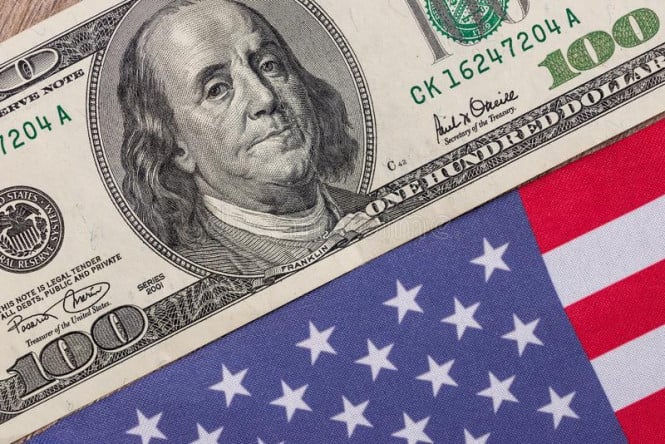
The middle of this week has become a milestone for financial markets waiting for the meeting of the US Fed. Most forecasts come down to the fact that the regulator will stick to the previous monetary policy and leave the key rate at the current level. At the same time, the market minority is tensely waiting for a catch, talking about the calm before the storm.
According to analysts, the Fed does not hold anything on its chest at the moment in the form of unpleasant surprises. In this situation, the markets begin to gradually recover after the phased lifting of quarantine restrictions caused by the COVID-19 pandemic, and the Fed will not create additional pressure factors for them.
Many experts are confident that the Federal Reserve will continue its monetary policy at today's meeting, scheduled for June 10, which has been successful since March 2020. It was then, at the beginning of the pandemic, that the foundations were laid for the restoration of the global economy, contributing to its V-shaped rise, in which almost no one believed.
The actions of the Federal Reserve aimed at the speedy recovery of economic destruction significantly supported the US currency. The dollar sharply increased and strengthened its position against other currencies. After some time, the US dollar weakened again, but it used anything, even the slightest chance of recovery during the trading.
However, analysts say that a number of obstacles arise in the way of the dollar's growth. The first of these may be a "surprise" from the Fed if the regulator decides to change the rate. It can be recalled that it is now at the level of 0.25%, and any "swing" both in the direction of decrease and increase can significantly shake the position of the dollar. However, experts consider this scenario unlikely and do not see a danger to the indicated currency in the upcoming meeting of a leading financial institution.
Another barrier to the potential growth of the US currency may be the market's disappointment regarding the strength of the American economy. If its influence on global financial markets was not questioned earlier, the situation has changed now. The dollar had undeniable advantages over other world currencies, strengthened by the national economy, but now this source is running out. According to analysts, the US economy periodically shows weakness, pulling into the abyss and the dollar.
It can be noted that the United States does not have domestic cash reserves, attracting the lion's share of its current capital from abroad. In an effort to increase investment, the United States used the status of the dollar as the main world currency, attracting foreign savings, but this flow may stop. The coronavirus pandemic made its adjustments by shutting off the monetary "valve", and the economies of different countries had to devote all their efforts to survival. In such a situation, each state fights for itself, and every penny counts. A relative exception is the actions of European leaders trying to join forces to jointly restore the eurozone economy.
In the current situation, which is worsened by the rampant pandemic, the dollar seems to be a reliable island for investors, an unshakable protective asset that will remain so for many years. Indeed, throughout the pandemic, the dollar did an excellent job as an asset-seeker, but now the market has rethought a lot, including its status. Investors fear for the future fate of the US dollar and for their capital denominated in dollars. In this situation, the risk of a current account deficit in foreign exchange transactions is growing exponentially, and the key currency status will not help the dollar in this situation. Analysts say that the dollar can likely collapse, burying the hopes of the market for further progressive growth. A possible collapse of the USD will entail severe consequences in the form of rising inflation, which can quickly transform into stagflation.
A weakening US currency is the first symptom of a growing current account deficit, so a sharp surge in the US trade deficit is not exempted. If this scenario is implemented, the global leadership of the American economy, left without internal savings, essentially with an empty pocket, will turn out to be a house of cards. As a result, it will collapse any time, under the influence of any more or less negative factor. Nevertheless, experts are depending on a more positive scenario, in which the dollar will not lose its leading currency status, and the US economy, with the support of the Federal Reserve, will not become a weakness.
Analyzing the current situation, experts conclude that the neutral policy of the Federal Reserve will be the most relevant in today's realities. As for the possible change in rates, there are no prerequisites for this. The market does not expect any severe changes in the current monetary policy, despite the high risk of the second wave of a pandemic. In the event of extraordinary circumstances caused by COVID-19, changes in the rhetoric of the Federal Reserve will follow. However now, during the lull period, the regulatory measures will be symmetrical to the current situation.
According to experts, the transition of the monetary Rubicon under the name of the Fed's interest rate (either downward or upward) can seriously unbalance the market. The Fed is aware of these risks, so analysts believe that it will leave everything as it is. At the moment, the regulator is likely to maintain the rate but at the same time, the balance in the financial markets is fragile, therefore, changes are quite acceptable in the near future.
The material has been provided by InstaForex Company - www.instaforex.com